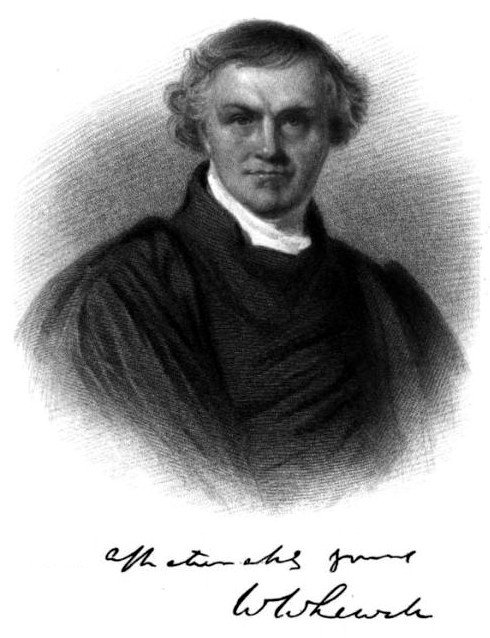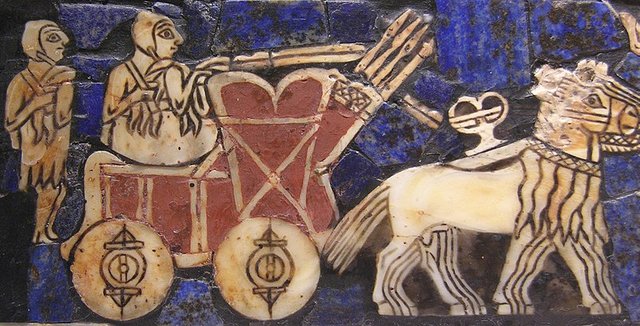Virtues, Catastrophe and Accounts Following the Emergence of Science
We all know that Athena is the greek mythology goddess of wisdom.
May be not all of us especially if you are not a fan of Roman Titan movies. Athena happens to play a major role in lives of many of the gods and as well as human lives, granting wisdom to live and battle strategies to overpower the enemies.
Ever since the dawn of ages, man has constantly been in quest of wisdom and knowledge. In fact, in ancient times men seek after knowledge more than they did for wealth. They needed strategies to war, to defeat their enemies, to claim lands, to overthrow leadership and to rule the world. It was not uncommon not to find Kings surrounding themselves with wise men from all sort of life to keep themselves afloat.

Licence: Public Domain -- Source: Pexels.com
Life didn't used to be as fancy and techy as it is today. In fact, science started as part of religion, art, culture and magic.
The desire for wisdom and knowledge lies in every man. Luckily, our world has been architectured to give us a daily dose of it irrespective our desiring it or not. Howbeit that man needs knowledge to understand himself, his environment and as well survive every night. The idea of what to consume and not what to make use of during the early days of man was not by laboratory experiments; humans got to learn from mistakes and natural instincts. The human brain is designed to ensure his safety and as well keep his species alive. It does this by a lot of mechanism such as the fight or flight response which pumps a lot of adrenaline into the blood making him superhuman at the slightest perception of danger, buffer systems for overseeing acidity or basicity of body fluids, storage of energy in different forms in the body, ability to be creative, sexual attractions among others which all boils down to four things the brain hardly can resist- food, water, sex and danger.

Licence: Public Domain -- Source:Wikimedia
The word Scientist was first used by William Whewell in the 19th century. He also coined the word physicist. He was an English Anglican priest, polymath scientist and philosopher.
Medical science has saved tons of life from infectious agents alongside food science has exposed us to the knowledge of the contents of our meal and how our body respond to them. In the ancient times, many of the sickness were blamed on curses, jinx and spells emanating from the gods and uncontrolable demonic possessions. Here in Africa especially Nigeria, almost all diseases are believed to be resulting from spells and lack of patronage of the deities. A family whose kids are always dying are said to be suffering from the demon of Abiku. However medically, the explanations for the cause of death could be derived. There are numerous diseases which can be suspected for the family's predicament, vast of them being genetic in origin-example of which are erythroblastotic fetalis and sickle cell anemia.
The issue of paternity is also one of the challenges medical science has helped solved in recent times. Architectural sciences has helped us create masterpieces of our environment, agriculture which is a resultant of science also has helped maintain food-population ratio, at least to a degree better than it not existing. Listing all the benefits science has launched us to are innumerable. It has made life more colorful and engaging. It answered so many questions which superstitions used to claim right to. But as science progresses, people tend to forget those times when there were minimal knowledge of our world, how people survived, how science metamorphosized and how we got to where we are today.

Science and technology has been evolving since ancient time. Metals were invented. This picture dispicts the existence of chariots (wheels) dating 4th millenium BC)
Licence: Public Domain -- Source Wikicommons
Science as we all know it didn't start in modern times, it has been programmed within our genes and existed in it primordial forms from the days of the early men. Curiosity and desire to survive was their greatest motivations. Science began as part of many religious practices and magical acts. The Egyptians discover the art of embalming as a way of preserving their kings into the afterlife, this is referred to as mummification. The earliest mummification were unintentional as buried bodies were preserved in the dry sands. Soon, mummification became an intentional art performed by priests which say prayers in the seven day long ritual. Alongside their spirituality, they had knowledge of the human anatomy. They removed internal organ prone to decay rapidly; a special hooked instrument is inserted through the nostril to evacuate the brain from its skull. The other evacuated internal organs removed from the chest and abdomen are preserved seprately. In later times after treating these organs, they are returned into the body.
The use of tools and machinery can be dated back to the time cavemen used crude tools for hunting and food gathering. The discovery of fire, metals and alloys are part of the branding factors of our civilization. Chariots were built, animals were tamed, empires were constructed among other.
However, science then used to be a mere recognition of regulations of nature's component and certain principles, this does not exhaust the full meaning of the field. Modern science is an empirical, theoretical and practical knowledge of nature. When science began to unfold in it most modern times, there were people researching into nature who referred to themselves as Natural Philosophers.
Empirical investigations involving the use of senses for knowledge acquisition had existed from the classical period an age centered on the Mediterranean sea between the 8th century BC and 6th century AD. This age encompass the dawns the civilization of the ancient Rome and ancient Greece.

Aristotle
Licence: Public Domain -- Source: Wikicommons
Hassan Ibn Al-Haytham was an Arabian polymath who made significant contribution to the concept of visual perception. He was the first to propose that when light rays hits an objects, it is directed to one's eye hence explaining the ability to see- vision. He placed emphasis that an hypothesis must be proved through empirism, just as Aristotle proposed. Another scientist who also supported this notion was Roger Bacon- one of the earliest proponent of the concept of studying nature and proving hypothesis with experiments designed based on confirmable procedures or mathematical evidences.
Repeated experimentation to answer questions or prove hypothesis however is not usually possible. So some scientist do not follow this rule because some areas of science are easily more tested than others. Scientist who study the how extinct animals lived wont find a live specimen to test their hypothesis, hence there are many modification on the science method across different areas of science and depending on the question asked.Scientific method can not be listed in any particular steps because experimentation is a complex engagement. Many experimentation ends even before an answer was gotten and some lack proper ethics.
Scientific hypothesis and culture had its way into the educational system in the 1800's. The first British science teacher in a public school was Sharp Willaim (1805-1897). He was a physician and a proponent of the doctrine of homeopathy, a claim that an ill person can be cured with a significantly small amount of the substance that produces the symptoms of the illness in an healthy person. After establishing science to the curriculum of the Rugby school, he resigned. In the united states, a standard curriculum was developed following a conference held to debate between the two ideologies- citizen science and pre-professional science.
Today, we can all see how science has diffused into all spheres of life and helping to make life easier and more intellectual. Many mistakes were made, errors and blunders published out and believed for a sizable period of time. A good example is the anatomy taught by the scientist- Galen of Pergamun. He was a greek surgeon and physician in the Roman empire and had so much influence even to the Arab world. His knowledge of anatomy comes majorly from dissecting lower animals such as sheep, goats and monkeys- this was for research purposes and as well enhance his surgical skills. He stood by the notion that anatomy was the basis of medicine. Some of his notable discoveries was that arteries transport blood as opposed to former believes that it carries air. However, his research and knowledge of medical science was greatly influenced by the humorism theory. This theory states there are four distinct fluids which flows in human body: the yellow bile, black bile, red blood and phlegm- and the balance of these fluid influence the temperament of a person.
A great deal of human anatomy by Galen originates from animal specimen as human dissection then was highly forbidden. According to Galen, blood is produced from the liver and starts its course from this organ, it is transported by the veins for nutrition or transformed into muscles or flesh. Air gets mixed with blood in the lungs and move to the other side of the heart through small pores found in the wall separating the two chambers of the heart.
Even as successful and well cultured Galen was, his work was later to be proved wrong by William Harvey. This happened a very much longer time after the death of Galen (centuries after). William made the first accurate description of the circulatory system. Knowing he was standing against a long time believed scientific theory by well reputed scientists and physicians of his days, he gathered incontestable experimental proof to support his claims.
A lot of scientific theories even today are still questionable and the science system would not hesitate to disclaim them when proofed otherwise wrong. This is a great thing about science, willing to accept the fact when faced with truths. Many scientists all over the world are making more research to enormously understand our world. Many of these researches are based on previous researches as most areas of nature has been explored.
Many of these scientist involved in the revolution of science; bringing it to what it is today paid a lot of prices. Sacrifices were made. I stumbled upon some articles claiming Isaac Newton died a virgin. We can't be particularly sure of this however, some scientist paid more which are well noted in science history. Marie Curie, a reputed physicist and biochemistry also had her sacrificial play in the development of science. She was the first ever woman to win the Nobel prize and not only did she win it twice, she was won it twice. She pioneered researches done on radioactivity and radioactive elements and her works has a substantial foundation for the field of radioactive studies. However, working with radioactive element, she developed aplastic leukemia and died at the age of 66.
Michael Faraday the prominent inventor of electricity lost his vision in a gas explosion. Carl Scheele the discover of oxygen and many other chemical element died of chemical poisoning. Elizabeth Ascheim who volunteered to experiment X-ray with her husband following her resignation from being a bookkeeper, unaware of the effects of the radiations developed cancer and died.
Having appreciate the significance of science, we can't deny its catastrophic impact upon our planet. We are loosing our ozone layer as a result of deforestation and industrialization. Architecture is blossoming but we are loosing our plant flora. Humans have in one way or the other caused the extinction of about 322 animals in 500 years. It has also lead to production of toxic substances which are diminishing the health of humans. But yet, we prohibit science! Except there lies another alternative!
Futher Reading
- History of Technology
- Scientific Methodology
- Scientific Method
- Science Revolution
- iscovery of the Circulatory System
Image Declaimer:
All images used in this post are under Public Domain, CC0 and CC-BY-SA-3.0 licencing. Images needing attributions are attributed properly after immediately usage.


If you write STEM (Science, Technology, Engineering, and Mathematics) related posts, consider joining #steemSTEM on discord here. If from Nigeria, there may be need to include the #stemng tag in your post. You can visit this blog by @stemng for more details. You can also check this blog post by @steemstem here and this guidelines here for help on how to be a member of @steemstem. Please also check this blog post from @steemstem on proper use of images devoid of copyright issues here.
Congratulations! This post has been upvoted from the communal account, @minnowsupport, by Damzxyno from the Minnow Support Project. It's a witness project run by aggroed, ausbitbank, teamsteem, theprophet0, someguy123, neoxian, followbtcnews, and netuoso. The goal is to help Steemit grow by supporting Minnows. Please find us at the Peace, Abundance, and Liberty Network (PALnet) Discord Channel. It's a completely public and open space to all members of the Steemit community who voluntarily choose to be there.
If you would like to delegate to the Minnow Support Project you can do so by clicking on the following links: 50SP, 100SP, 250SP, 500SP, 1000SP, 5000SP.
Be sure to leave at least 50SP undelegated on your account.
This post has been voted on by the steemstem curation team and voting trail.
There is more to SteemSTEM than just writing posts, check here for some more tips on being a community member. You can also join our discord here to get to know the rest of the community!
Hi @damzxyno!
Your post was upvoted by utopian.io in cooperation with steemstem - supporting knowledge, innovation and technological advancement on the Steem Blockchain.
Contribute to Open Source with utopian.io
Learn how to contribute on our website and join the new open source economy.
Want to chat? Join the Utopian Community on Discord https://discord.gg/h52nFrV
Hello, i just upvoted your post. Also, $10 - $160 Reward is waiting for you in GBYTE crypto, please
follow instructions in this post:
https://steemit.com/steemit/@cryptomonitor/airdrop-how-to-claim-tutorial-byteball-bytes-airdrop-to-steemians-hot .
Join our Discord & enjoy happy STEEM community: https://discord.gg/qQZ7Eng